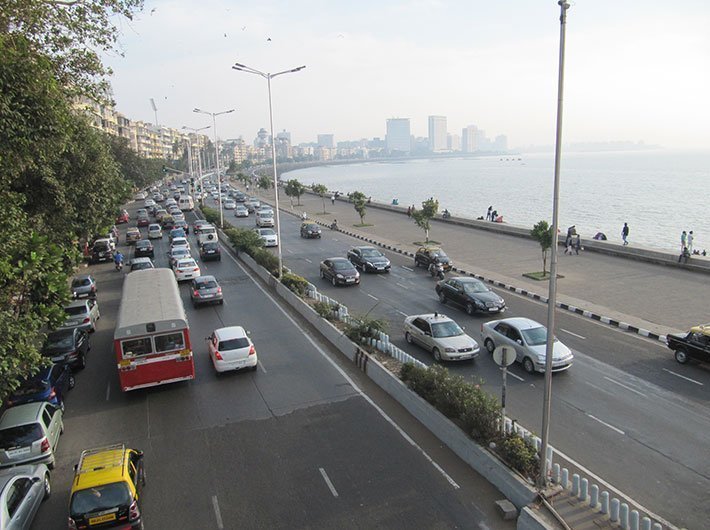Marine litter is a serious trans-border issue. Global research estimates say that about 80% of marine litter comes from land-based mismanagement of solid waste that reaches the ocean bed through various land-to-sea pathways. Remaining 20 percent is the contribution of coastal settlements.
One of the most common sources of marine litter is tourist and beach litter. Majority of these wastes is made up of multi-layered and low-value plastics, polystyrene, plastic products like cutlery and carry bags, cigarette butts, etc. These wastes are either not collected or are mismanaged and eventually leak into the oceans through the stormwater drainage system, canals and small and big rivers.
India with its 7,517 km of coastline across nine states and 66 coastal districts is home to about 250 million people. The coastline has 486 census towns and 36 class I towns. It also hosts 12 major and 185 minor ports.
A large amount of footwear waste like soles, synthetic bases and cloth bases are also being found in marine litter in India. Other contributors to marine litter include fishing communities (mostly fishing gear), flood waters, discharge of untreated municipal sewage, automobile and industrial waste generated at the coasts and waste from shipbreaking yards.
To address the problem of trans-boundary marine litter and to focus on combating the scourge of marine litter across the country, a National Coalition of Coastal Cities has been launched by Centre for Science and Environment (CSE). The coalition was launched during the two-day National Consultation Workshop, organised and spearheaded by CSE at Nimli in Rajasthan that concluded on Wednesday.
“The problem of marine litter is a serious trans-boundary issue. Eight million tonnes of plastic waste from 192 countries that have a coastline goes into our oceans every year. India with a 7,000-plus km coastline has a role to play in controlling this menace,” Sunita Narain, director general, CSE, was quoted as saying in a statement.
She said about 90 percent of all the waste that ends up in the marine ecosystem is plastics. Out of 460 million tonne (MT) of global plastic production, close to 353 MT comes back as plastic, i.e., 8 MT (2.26 percent) of which is leaked into the marine ecosystem.
Researchers at CSE said that in India, estimated extent of marine litter is about 0.98 metric tonne of trash per km stretch of the coastline with a concentration of 0.012 kg per square metre.
Atin Biswas, programme director, solid waste management unit, CSE, said estimates indicate that about 15,434 tonne of plastic waste is leaked into South Asian seas every day accounting for a colossal 5.6 MT of plastic waste a year. Siddharth G Singh, programme manager, solid waste management unit at CSE, too said that tributaries of major Indian rivers are the pathways that carry around 15-20 % of plastic waste into the marine environment.
India is the world’s second largest fish producing nation with about 2,50,000 fishing boats, 40,00,000 fisherfolk and 3,600 fishing villages. India’s coastline also has a rich biodiversity protected by about 4,120 km of mangroves.
One of the key challenges worldwide is from abandoned, lost or discarded fishing gear (ALDFG). A large part of ALDFG is lost in deep seas making it difficult to recover. India has 174,000 units of fishing gear in operation, of which 154,008 units are gillnets/driftnets, 7,285 units are traps and the rest are fishing lines. According to the Food and Agriculture Organization (FAO), India loses 15,276 tonne of gillnets annually.
Biswas said that in 2021, 58,000 kg of ghost net was recovered from the beaches and the ocean bed. The scale of the threat can be gauged from the fact that out of 1,000 eggs laid by a female turtle only 10 are able to convert into adult turtles because of marine litter and ghost nets.
Key problems identified in the workshop included absence of adequate research-driven data, lack of synergy in policy and practice among institutions connected to the causes of marine litter, and an unmet need for investment in a communication strategy to engage with citizens, fishing communities and industrial establishments.
It was felt that policies like the single-use plastic ban and EPR (extended producer responsibility) need to be enforced stringently. The coalition will be a platform for further research, capacity building and advocacy on the subject.

